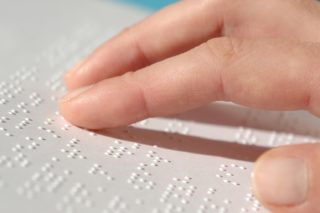Should You Disclose your Disability in a Job Interview?

Share
Up to one in four Americans have a disability—a physical or mental impairment that substantially limits one or more major life activity. Many of these disabilities are “hidden conditions,” such as ADD/ADHD, diabetes, chronic illness, PTSD, learning disabilities, and depression.
Traditionally, job seekers with disabilities have been advised to never disclose their condition. The thinking behind this approach is that if you reveal a disability, it damages your chances of getting hired. But is that still the case?
The truth is, learning how to strategically speak up about your disability may, in fact, boost your chances of getting a job.
Employers are embracing “disability diversity”
The U.S. Labor Department mandates that federal contractors must take steps to hire minimum numbers of veterans and workers with disabilities—amounting to approximately 7% of their workforce.
Most employers still have a gap to close. That means they are eager to find qualified candidates with disabilities, and individuals with hidden disabilities.
But employers’ change in attitude isn’t driven solely by government mandate. Increasingly companies are realizing that hiring people with disabilities isn’t just a nice thing to do—it also makes good business sense.
If one in five employees have a disability, then about 20% of all customers do as well. As Tracy Curtis, Wells Fargo Oregon & SW Washington Region President, puts it: “Employing people with disabilities helps us understand our customers more fully, see business opportunities in new ways, and succeed in serving the needs of all customers.”
Diversity in the workplace also breeds creativity and innovation. People who live outside the box tend to think outside the box too, which brings fresh perspectives and ideas.
“People naturally rely on their life experience in determining how to approach situations and problems. When you have a group of people with diverse backgrounds, you gain a richness from their different approaches,” says Laura Goty, NW Natural Human Resources Manager.
Employees with disabilities also have better retention rates than their able-bodied peers, which saves businesses time and money.
How to disclose your disability with an employer
Unfortunately, stigma does still exist, and not all employers are working towards the same diversity metrics. So the key for job seekers is to learn when and how to disclose.
Since hiring managers aren’t allowed to ask outright about a person’s disability, it’s up to the job seeker to be aware of the potential assumptions being made about their abilities, and to dispel misunderstandings in a positive, concise way by focusing on what they can do and not on what they can’t.
Here are the three steps to disclosing your disability without damaging your chance at the job:
- Briefly describe your functional limitations.
- Explain reasonable workplace accommodations you will use to be successful.
- Propose value about your compensating assets and your highest/best use.
For example, “You may notice that I am visually impaired, but it’s not as big of a deal as you might think. I use a screen reader to access a computer and can actually read a lot faster than my peers because of it.”